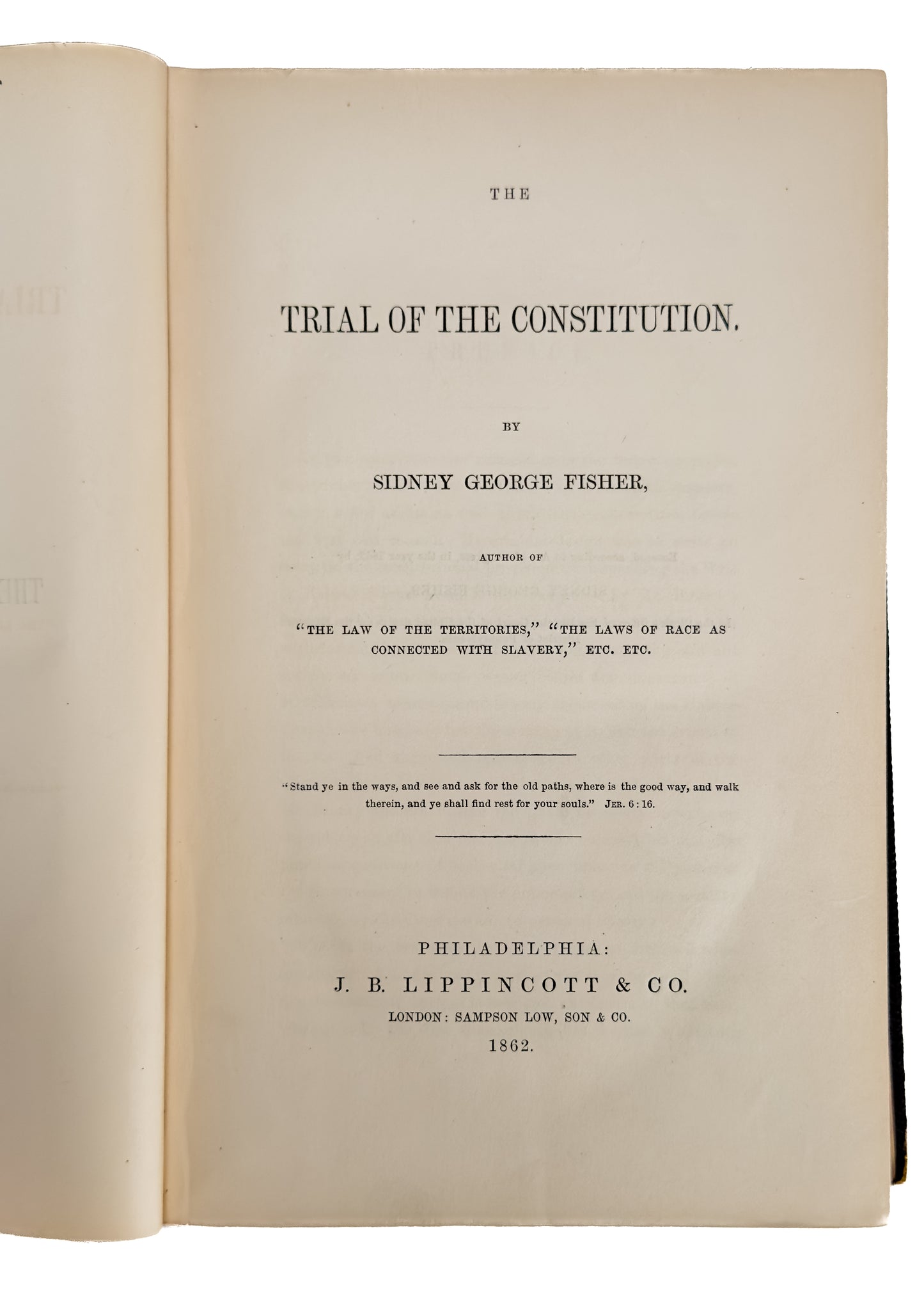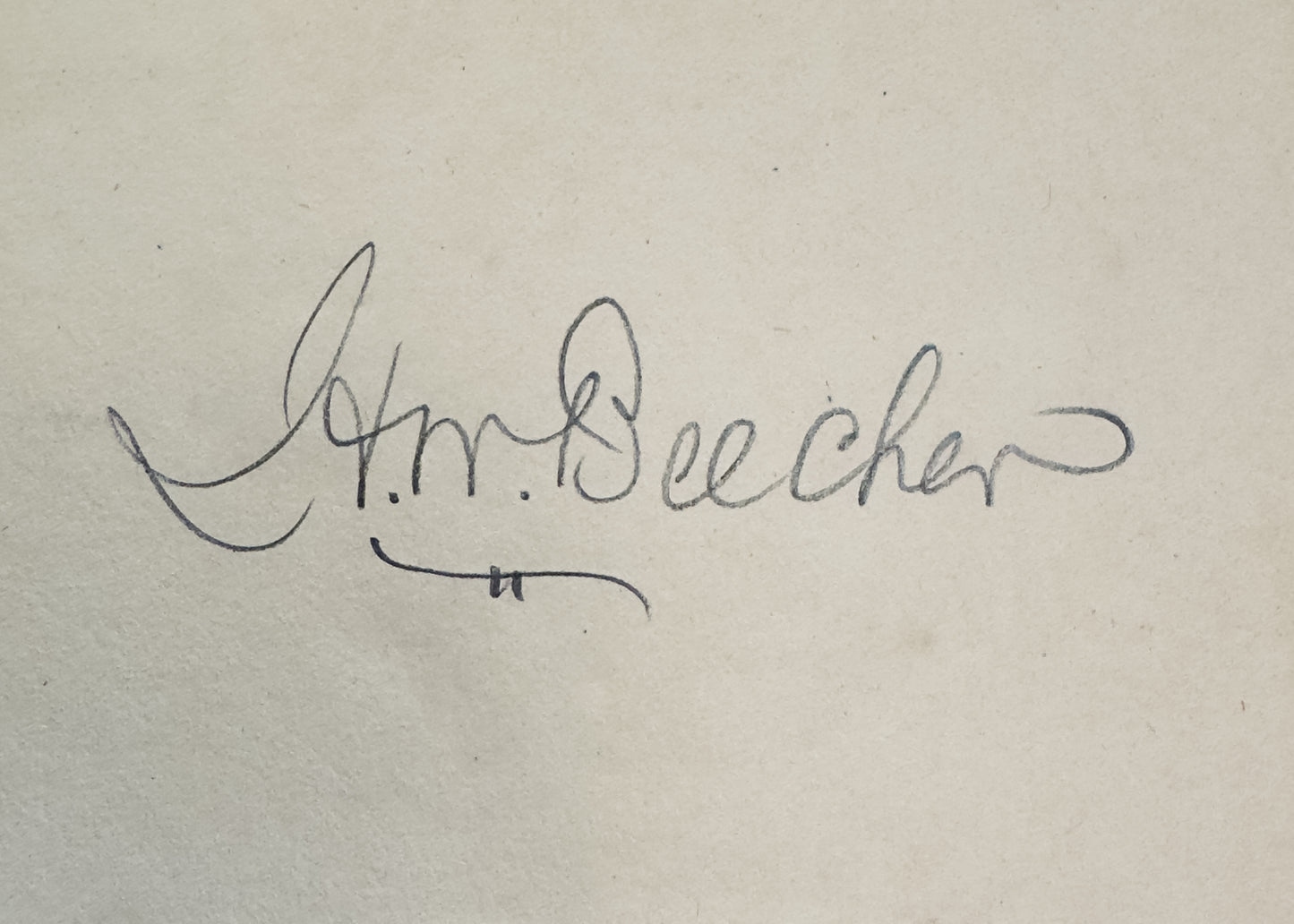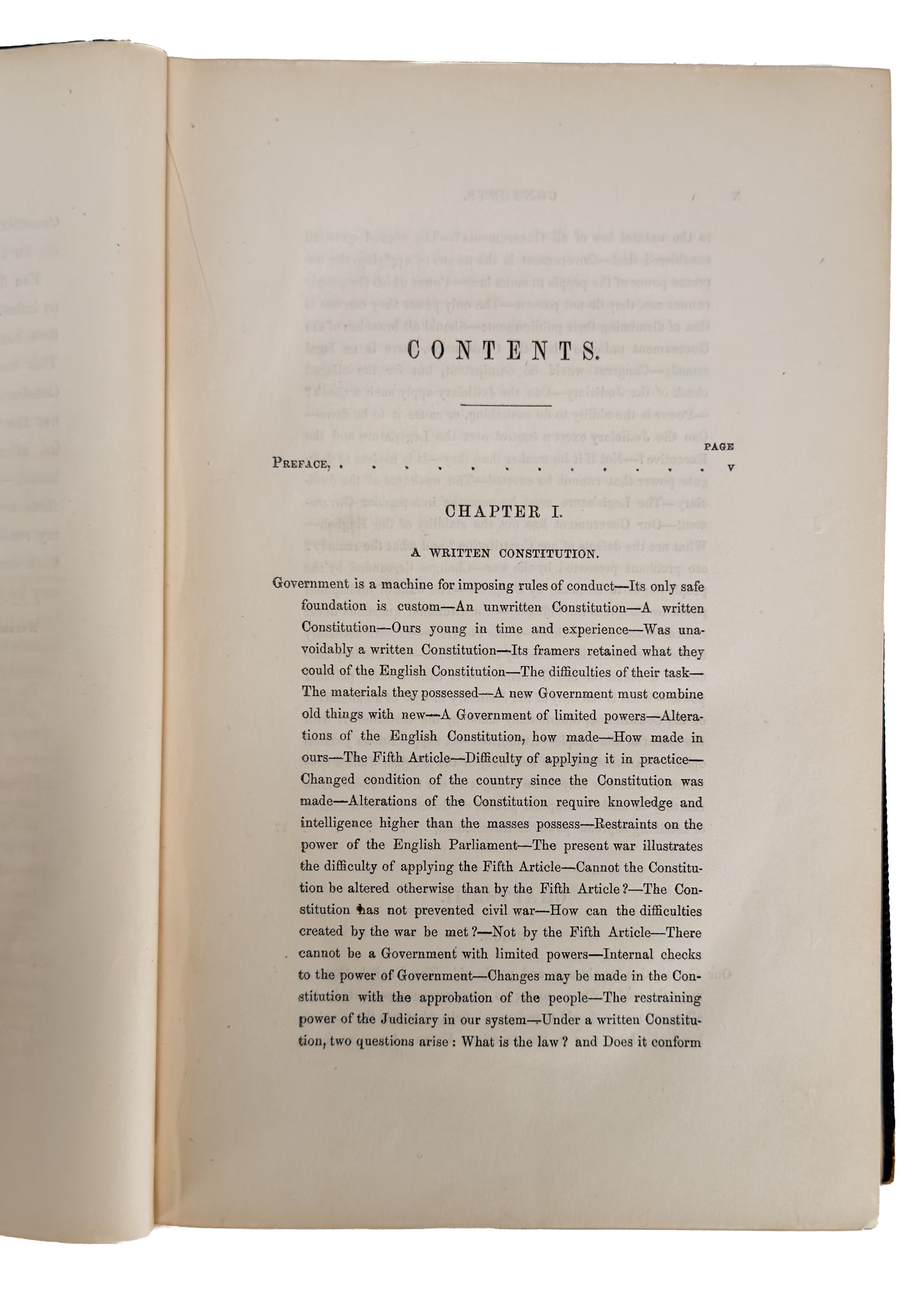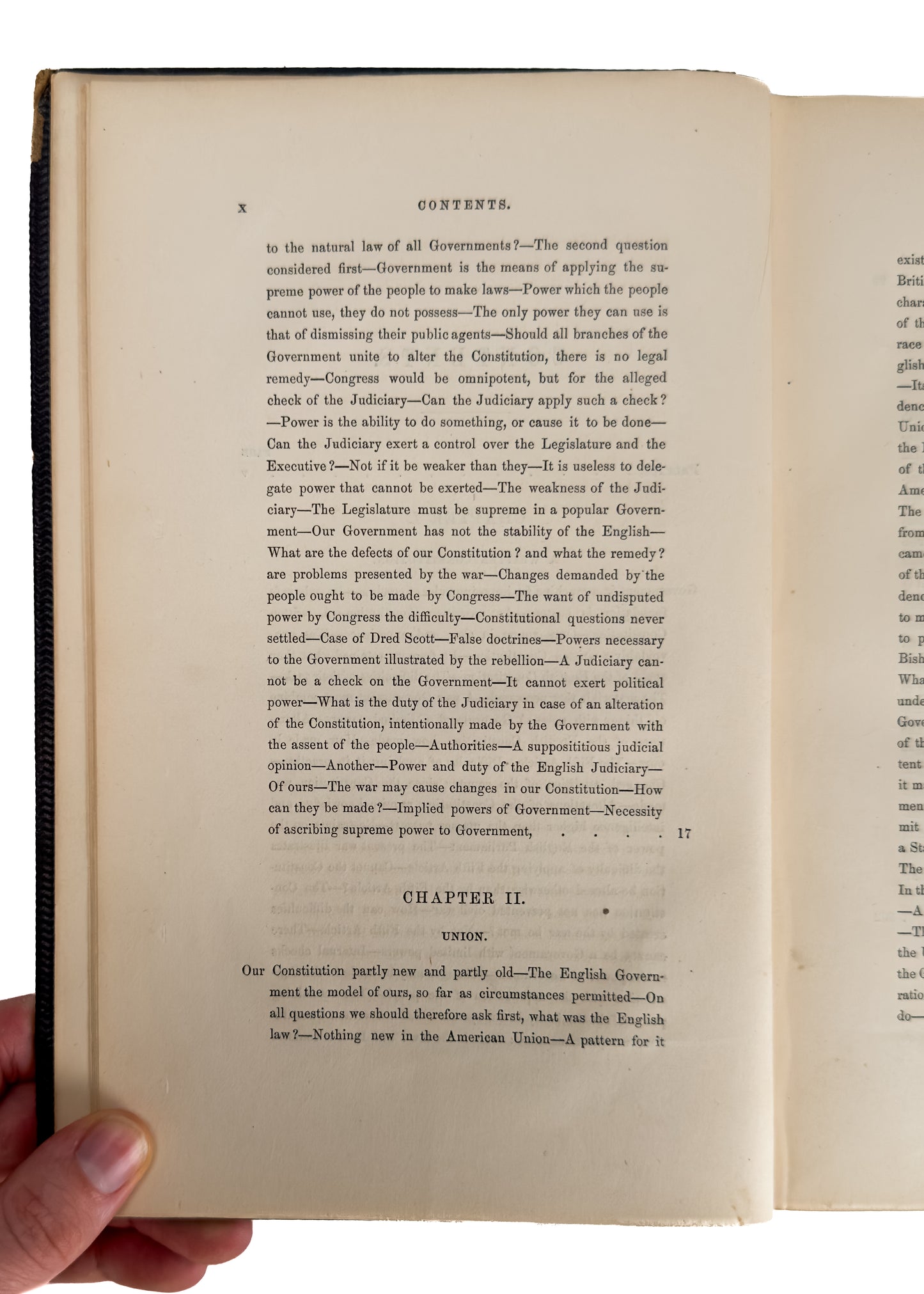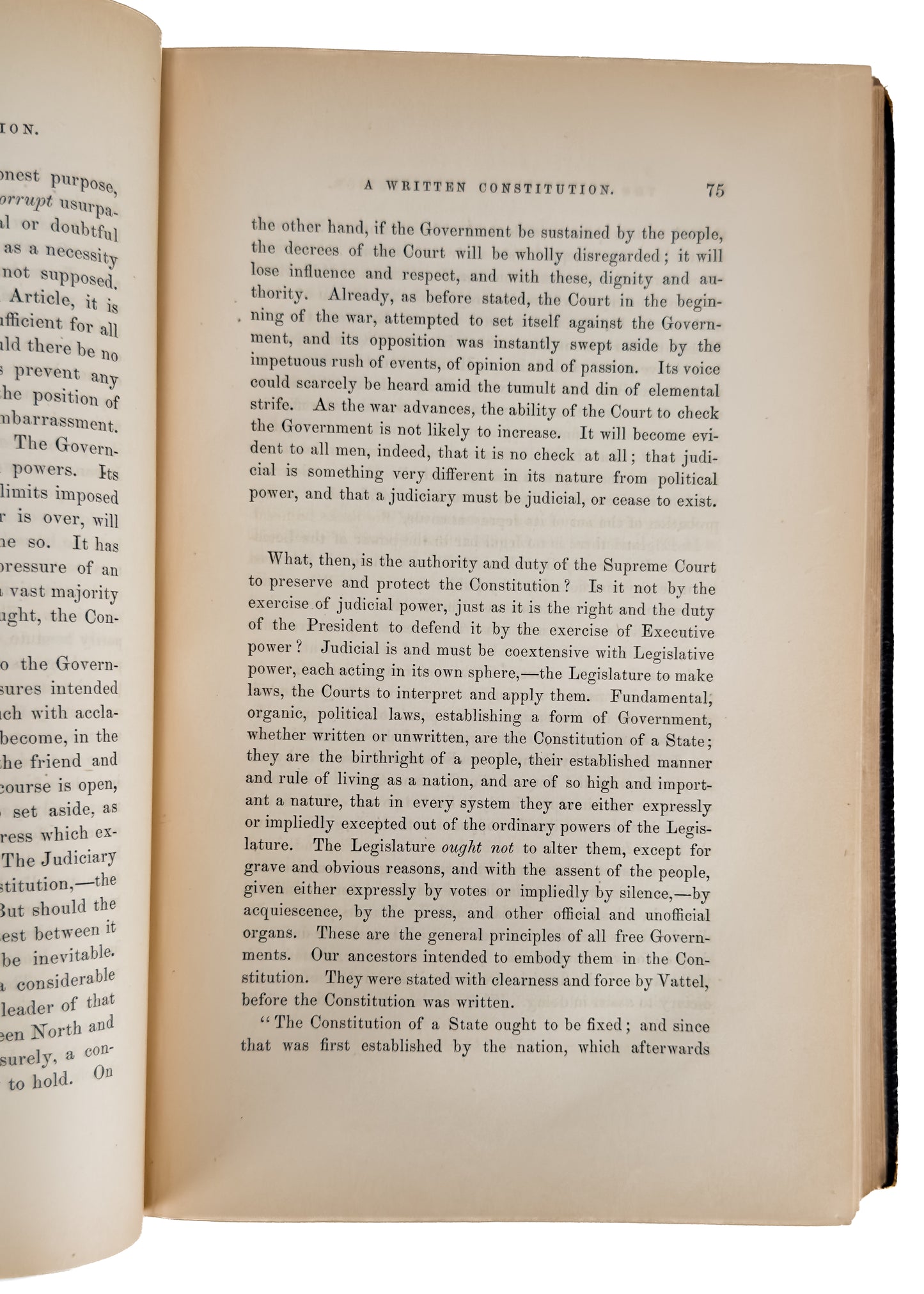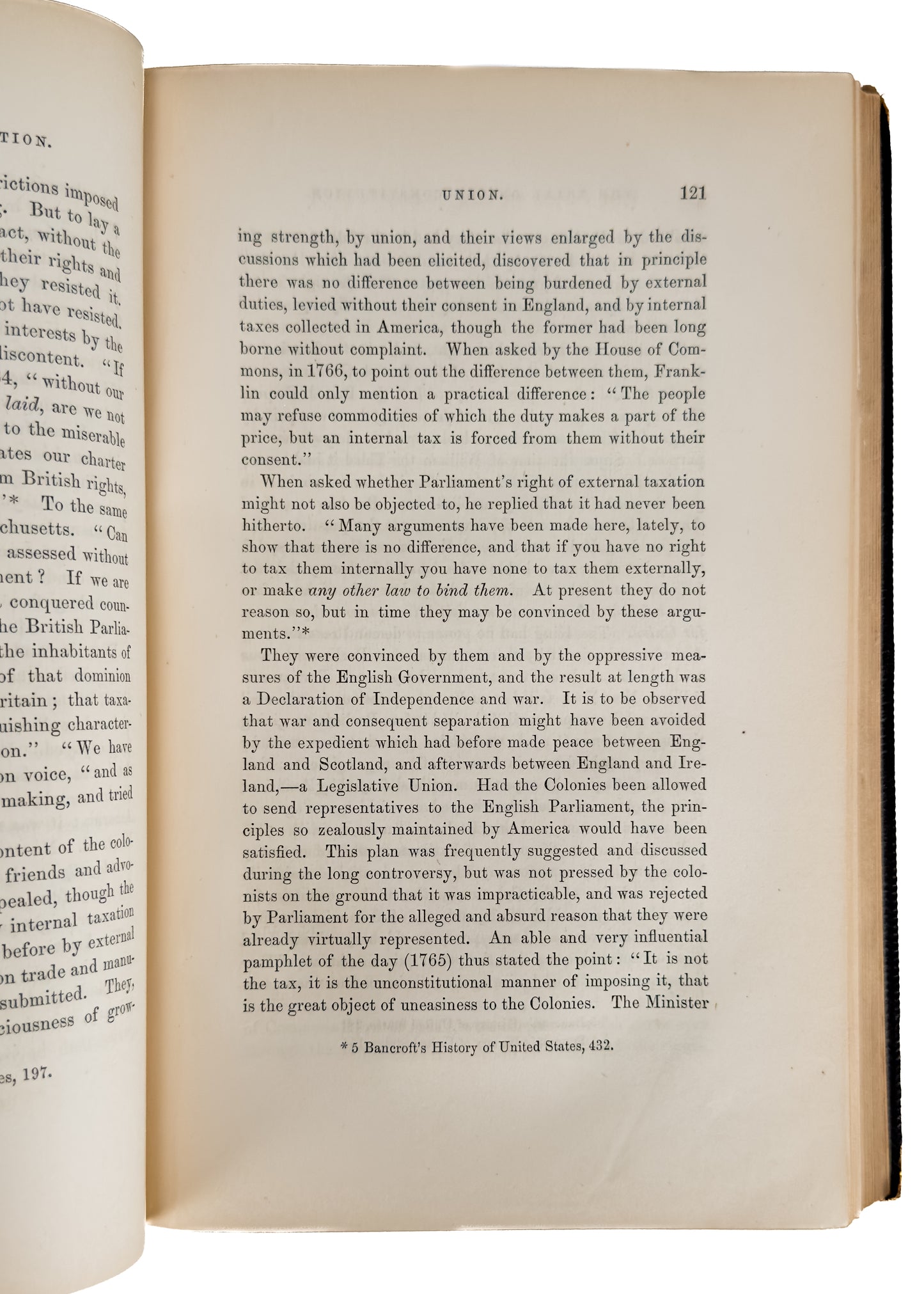Specs Fine Books
1862 SLAVERY & TRIAL OF THE CONSTITUTION. Henry Ward Beecher's Copy of Important Civil War Text.
1862 SLAVERY & TRIAL OF THE CONSTITUTION. Henry Ward Beecher's Copy of Important Civil War Text.
Couldn't load pickup availability
A very important copy of a landmark work in the history of Constitutional Law. Lawyer, Sidney George Fisher 1862 work, presented here, The Trial of the Constitution, was the first work to interpret the U.S. Constitution "in light of the prevailing European tradition of centralized, responsible government", and it "deserves a permanent place among commentaries on American government . . . " [W. H. Ryker, 1954]. Historian and political scientist Clinton Rossiter has written that Fisher's book ". . . is an eloquent statement of the powers of emergency and self-preservation inherent in the Constitution and government."
A major feature of the book was Fisher's discussion of habeas corpus in the United States, and especially whether a U.S. President has any power to suspend that right. Fisher took the position that U.S. constitutional law regarding habeas corpus was much closer to the British practice under the Habeas Corpus Act 1679 than Fisher's contemporaries such as Horace Binney would admit. More generally, this book by Fisher asserted that precedents from England had been undervalued in U.S. constitutional interpretation, and that they warranted greater recognition.
The historian Mark E. Neely Jr. has written that, "No treatment of the habeas corpus controversy and presidential power would be complete without consideration of Sidney George Fisher, whose place as a constitutional thinker has been magnified by the fact that he wrote the only full-length book on the Constitution in the Civil War that was published during the war itself." According to Neely, Fisher's book was also unique for its time in that it argued for greater congressional power relative to the other branches of government.
As of 1862, Fisher tends to see the Civil War as a Constitutional issue rather than a moral or ethical one. Slavery is handled extensively in the text, both throughout and as a separate issue. But it is viewed almost solely from the vantage of the structural crisis emerging from it. However, in the course of writing this work and the following year while working on another project, Fisher made several trips to the South. During this time he became an abolitionist and ended up conceding that the integrity of the Union was not only "doctrinal," via the Constitution, but moral and that the Constitution could not hold together a people who would not gravitate toward respect and dignity for all persons.
The present copy neatly autographed by Henry Ward Beecher on the ffep. Beecher of course being an ardent abolitionist himself, one of the most influential preachers and orators of the 19th century, and brother to "the little woman who started the war," Harriet Beecher Stowe. Aside from the signature, just a few stray pencil marks also apparently in Beecher's hand.
No copies at auction since 1934 and scarce in the trade.
Fisher, Sidney George. The Trial of the Constitution. Philadelphia. J. B. Lippincott & Co. 1862. 391pp.
Good -. Spine cover lacking, front board clean but detached. Textually very good save four leaves which were folded together; now straightened, but creased. A textually very nice copy with superb provenance.
Share

